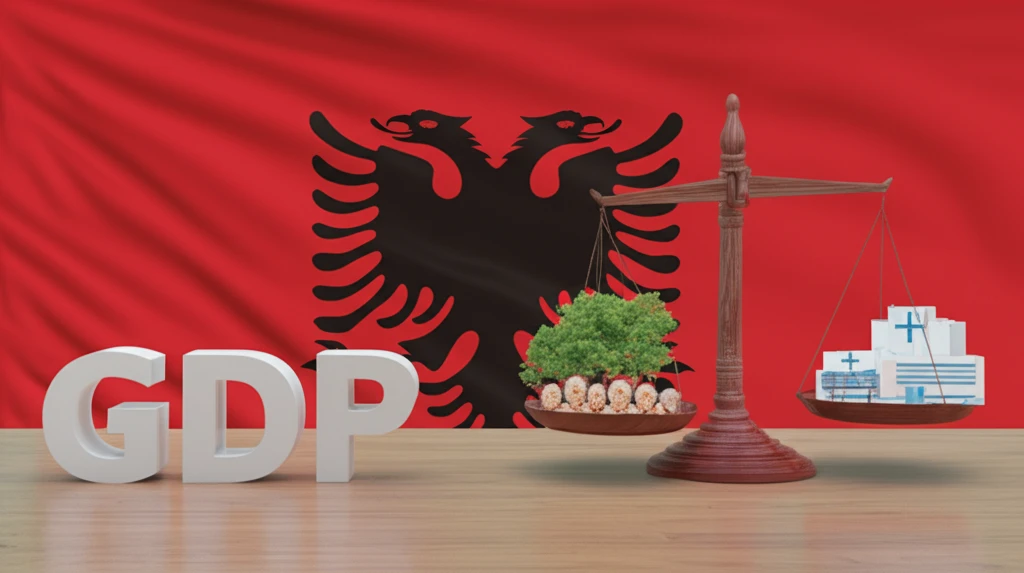
Albania's Quality of Life Conundrum: Are Official Numbers Painting a Real Picture?
"Dive into the challenges of measuring societal well-being in Albania, where economic indicators might not reflect the lived experiences of its citizens."
The concept of 'quality of life' is multifaceted, extending beyond simple economic metrics like GDP. For Albania, a nation undergoing significant transformation, understanding the true quality of life requires a critical examination of the indicators used and the challenges in obtaining accurate data.
Official statistics often paint an optimistic picture, but do these numbers truly reflect the everyday realities for Albanians? Factors such as access to healthcare, education, environmental quality, and social well-being play crucial roles but are often overshadowed by macroeconomic figures.
This article delves into the problems of defining and measuring quality of life in Albania, analyzing the reliability of current indicators and exploring the systemic issues that hinder accurate assessments. By understanding these challenges, we can better evaluate Albania's progress and identify areas needing urgent attention.
The GDP Illusion: Why Economic Growth Doesn't Always Mean Better Lives

While Albania has experienced economic growth in recent decades, with GDP per capita increasing, this growth doesn't automatically translate into an improved quality of life for all citizens. The distribution of wealth, access to essential services, and environmental factors all contribute to a person's overall well-being.
- Inaccurate Data: The accuracy of GDP figures is questionable due to inconsistencies in data collection and reporting, particularly in key sectors like agriculture and tourism.
- Uneven Distribution: Economic gains may not be distributed equitably across the population, leading to disparities in living standards.
- Neglect of Non-Economic Factors: GDP ignores crucial aspects of quality of life such as environmental quality, healthcare access, and social cohesion.
Moving Towards Genuine Progress: A Call for Reliable Data and Inclusive Development
Improving the quality of life in Albania requires a shift in focus from solely pursuing economic growth to prioritizing comprehensive well-being. This necessitates establishing independent bodies to collect and analyze data, ensuring accurate and reliable indicators that reflect the lived experiences of all Albanians. By addressing these challenges, Albania can pave the way for genuine progress and a brighter future for its citizens.
